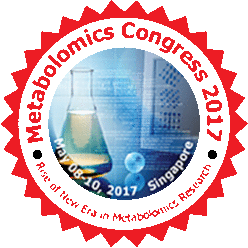Sayan Chakraborty
Institute of Molecular and Cell Biology – A Star, Singapore
Title: An oncogenic role of Agrin in hepatocellular carcinoma: Mechanisms and therapeutic strategies of targeting Agrin in cancer
Biography
Biography: Sayan Chakraborty
Abstract
Problem: Hepatocellular carcinoma (HCC) is one of the leading causes of cancer related deaths globally. The identity and role of cell surface molecules driving complex biological events leading to HCC progression are poorly understood, hence representing major lacunae in HCC therapies.
Approach: Combining quantitative proteomics and biochemical approaches, we uncover a critical oncogenic role of Agrin, which is frequently overexpressed and secreted in HCC. Our systematic cell biological analysis indicated a role of Agrin in maintaining focal adhesion integrity through stimulation of Focal Adhesion Kinase (FAK) that functions in cellular migration, invasion and tumor growth. However, the exact mechanisms by which Agrin’s mediates liver tumorigenesis remain unknown.
Findings: The present study dissects how Agrin mediated signals from the extracellular matrix are sensed by tumor cells. Agrin binds to its co-receptors Lrp4 and subsequently activates MuSK to mediate oncogenic effects through activating focal adhesions. Additionally, integrins and focal adhesions collaborate closely with Agrin in communicating ECM signals to intracellular components in HCC cell lines, thereby promoting their invasive, migratory and growth capabilities. More importantly, Lrp4-MuSK as well as integrin-FAK pathways are crucial downstream signaling axes of Agrin’s functions in liver tumorigenesis. Additional studies reveal that Agrin activates the Yes-Associated Protein (YAP) oncogenic program in liver by negatively regulating Hippo tumor suppressor pathway.
Conclusion & Significance: Our evidence suggests that function blocking antibodies against Agrin may inhibit integrin-FAK and YAP signaling, thereby reducing in vivo tumorigenesis. In addition to FAK and YAP inhibition in HCC, these novel insights shed significant weight on the possibility of targeting Agrin mediated oncogenesis in HCC.

